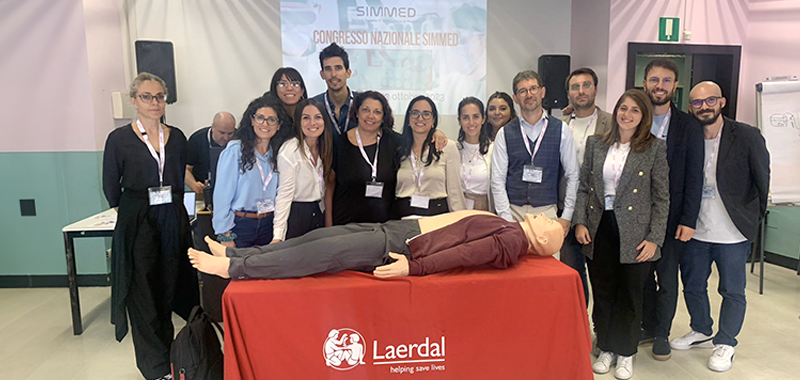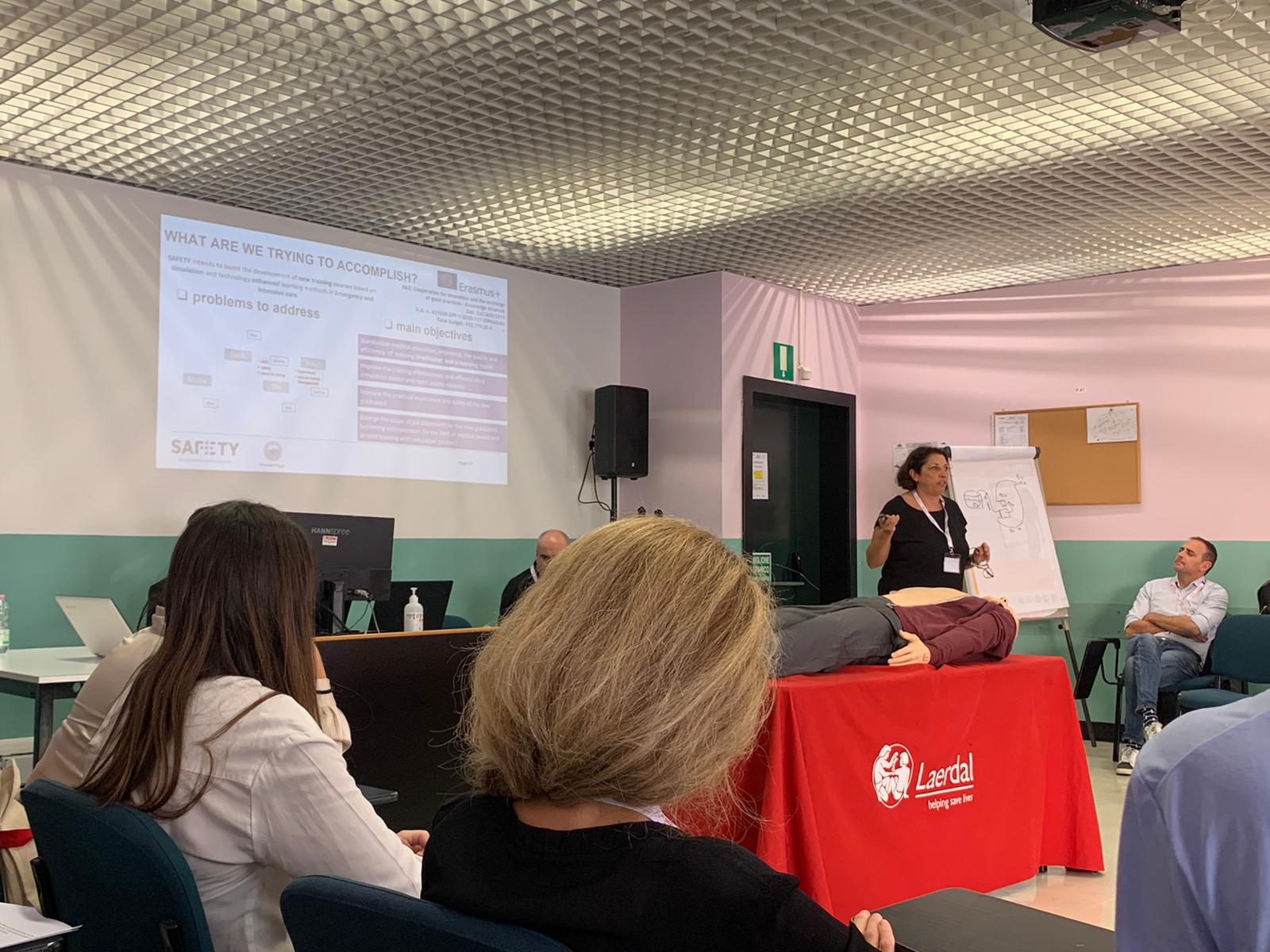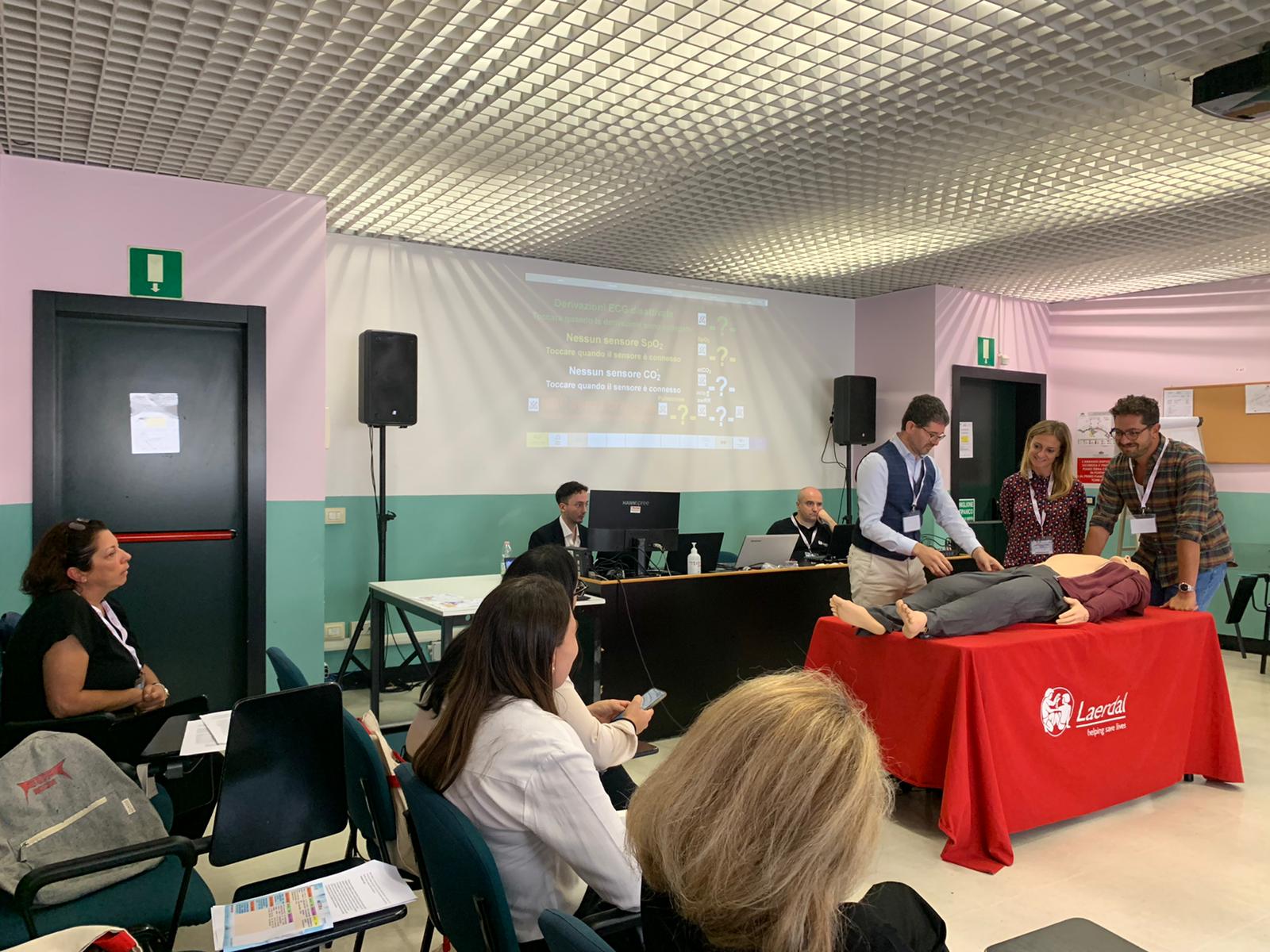
The SAFETY project, coordinated by Prof. Gilda Cinnella from the University of Foggia (UniFg), was presented at the conference of the Italian Society for Medical Simulation (SIMMED), held on the 13th October 2023 in Genoa (Italy).
The UniFg SAFETY team organised a workshop session within the conference to demonstrate and share some modules of the training material developed by SAFETY through a theoretical-practical session on medical simulation in Emergency Medicine.
In particular, the workshop aimed to summarise the key concepts related to the European cooperation for advanced training in Emergency Medicine through simulation carried out within the SAFETY project and promote its main results by presenting some clinical scenarios using a simulated patient and innovative tools.
This event also involved two more SAFETY partners: the Ludwig Maximilian University of Munich, represented by Prof. Marc Lazarovici and Dr Selina Kim, and the Laerdal Italia, represented by Novella Callero and Juri Bendini, providing content and technical support.
The workshop program was carried out in 60 minutes, and it was organised as follows:
- Presentation of the SAFETY project: objectives and main results (UniFG)
- How to create a theoretical module and clinical scenario for simulation (UniFG)
- Introduction to a clinical case (LMU)
- Representation of the clinical case through a scenario (UniFG – Laerdal)
- Debriefing and interaction with participants (LMU – UniFG)
The SAFETY main objectives were introduced by Prof. Lucia Mirabella (UniFg). She explained that “the workshop attracted more than 20 participants, and most of them were interested in the project and how to engage with it.” in particular, the participants expressed their interest in getting access to the training material developed with clinical cases and scenarios.
“Using practical cases, proposing essential techniques for organising and managing a clinical scenario in simulation, involving the participants actively in working groups, also through a debriefing session, it resulted to be a successful approach”, is what Prof. Mirabella highlighted.
Prof. Lazarovici, in charge of the workshop contents among the SAFETY-developed cases, proposed to simulate hypoglycemia as a clinical case using a simulated adult patient provided by Laerdal.
During the workshop simulation, he explained all the main important aspects and conditions to consider in such a case, involving participants and moving from the scenario to the debriefing to provide new soft and technical skills to the participants, together with practical tools for those who wanted to develop a theoretical module and set up a simulation scenario.
Prof. Lazarovici declared, “The conference was a great experience – overall, but also our workshop, as demonstrated by the participants” because “there is a huge need to teach students emergency medicine in a broad and hands-on way, and simulation can accomplish this”.
Also, Novella Callero was “impressed with the interest demonstrated” by the workshop participants and wishes that “the SAFETY Moodle platform will be soon accessible online” to allow knowledge sharing and improve training.
In conclusion, from the recent workshop experience at SIMMED, Prof. Lazarovici expressed that “the SAFETY theoretical modules are of great interest”, and “as I was talking with young doctors, who very well remembered the time they were learning, they wished they would have had access to such a course”.
This successful result pushes all the SAFETY partners to move forward and continue this cooperation, not only for the project implementation, but also for future initiatives at European level on simulation and training for the medical field.
Written by Fedele Colantuono – University of Foggia team





